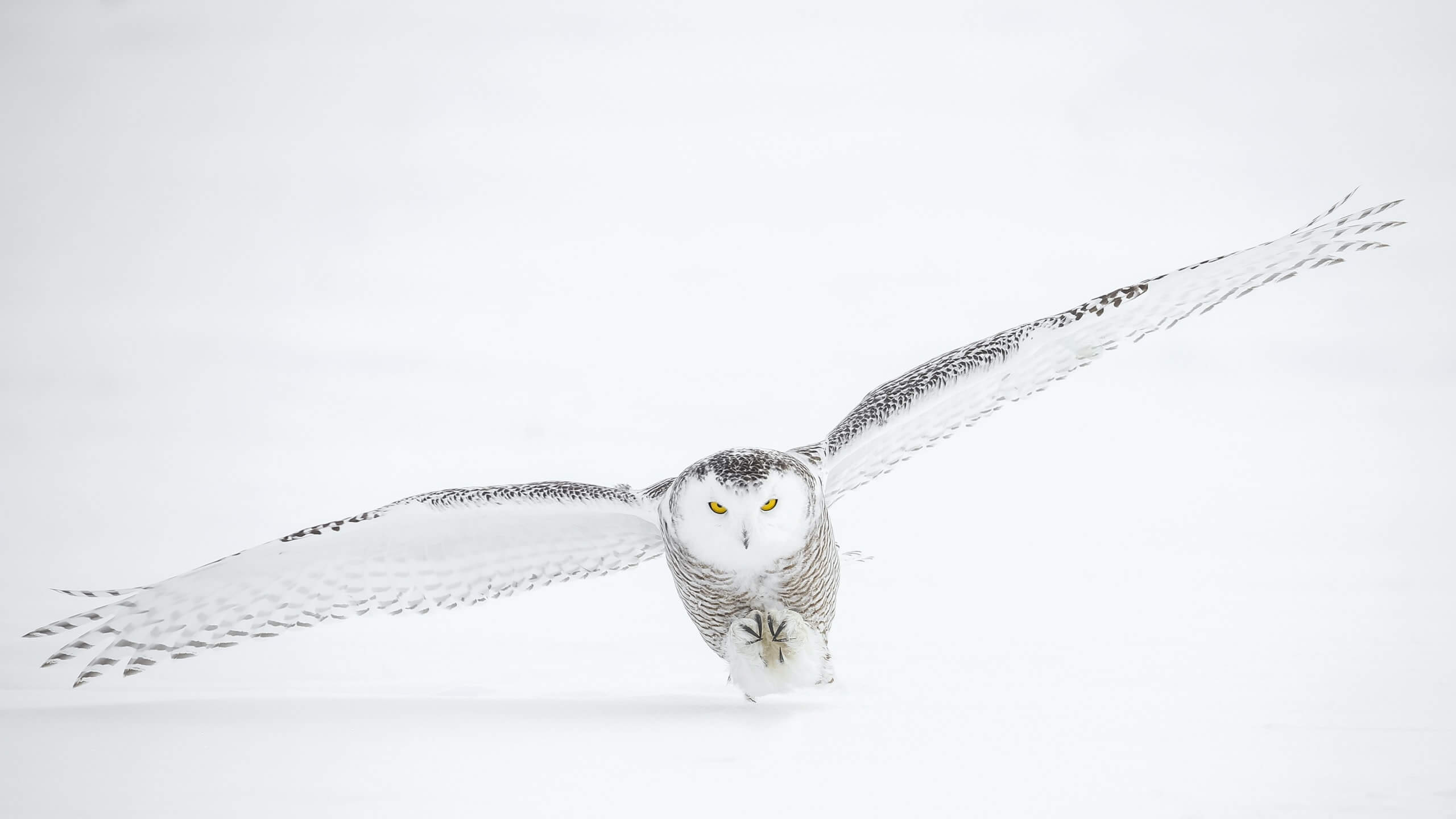
The Mystic Owl
—After the painting by Sabra Crockett, "Mystic"
At dusk, a barn
owl puts on a riding coat
of gray-white feathers
and mounts a horse of air.
Galloping away,
he brings silent death
to mice and voles
in fields beside our home.
Once filled, he tugs reins
of gravity, the horse pulls back
and arcs across the farm
to a favorite branch
on an ancient cherry tree.
Perched, he meditates
in metallic starlight
against the night-black trunks
of cherry, oak, blighted elm.
The owl's mystic temple
is a latticework of branches,
roof, chimneys,
where he turns the two
white saucers around each eye,
collecting faintest sounds—
distant rain, heartbeats
of robins tucked in nests,
rabbits rustling in warrens.
He makes one last flight
across the sparkling creek,
the cool dark meadow,
guiding his invisible horse
back to the barn
where he hangs
a gray-white coat
across the weathered door
like a broken patch of sun.
Another dawn, and we awaken
to water cattle, scatter hay.
We hardly ever see
the owl, except in paintings
or in dreams, so we bend
in our daily chores,
knowing he lives
just out of sight,
which somehow makes us happy
as we work into the day,
trying to be wise.
Vines
i. Reading Your X-Ray
Viral proteins
tumble through your ribs
like dandelions across
wet fences.
Blood vessels, like dogwoods
that normally bloom in pink,
turn to leafless limbs.
Deeper, in the world
of your body—
pulsing rivers, sweeping culverts,
swales and basins
in the unseen spaces
where air should flow,
fill with viral snow.
I think you won't return
once they check you in.
ii. Home Alone
I prowl the yard
under clotheslines
where you hung our shirts
like second selves, empty cuffs
dangling in the air.
Past hollies, to a garden shed.
Inside, a wood stove molders,
iron claw feet anchored
to old wood, its chimney choked
by bird nests, twigs.
This is your spirit
turned to iron.
Sometimes it wheezes
when the wind picks up
as if trying to speak
as you do on your sickbed—
orange sparks
of fever beneath your breath,
viral cinders on your tongue.
As you breathe, the wind
drifts in the stove's
rusted gut, searching
under ash, burnt sticks,
toward a hidden unwavering flame.
iii. Return
I sit porchside, one cat
on each porch stone,
waiting for your hands.
When you arrive
I help you up the steps.
All around, plague surges
in a blizzard, while here,
mid-morning calm—
dew hanging in bracelets
of wisteria and ivy.
Our cats curl
on garden tiles
licking grass-soft fur,
then their paws
to disinfect and heal,
rasped tongues swirling
layers of whiteness,
thick as my throat
on your arrival, sweet
as clotted cream.
iv. Dis-enchantment
Two weeks home,
the laundry flaps
on its own, the woodstove
wheezes, the wooden beams
inside our house tick even
when we're gone.
Nothing is as it was. Around us
plague mutates in a storm—
clouds of virus
unroll and recombine
in oceans of our veins.
All summer
we're stuck at home
as ivy grows across the house—
up walls, chimneys—
a sinewy vine, latching on
the way we do,
growing
in a tightening spiral,
each leaf edge
tangling the days.
So we cook and clean
in solitude
as ivy crawls the roof.
This high, swallows flit
in the smallest spaces
between branches
like spirits of the dead.
And each night we sleep
thinking of disease, mortality,
while the streetlights
sidle by the window
tracing circles of cool light
into your hair.
Above, a familiar
brush of wings, talons
ticking gutters, as the swallows
finally close their feathers,
settling to rest
in temples of the eaves.